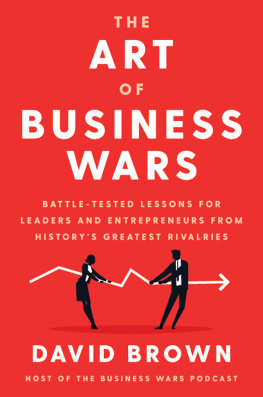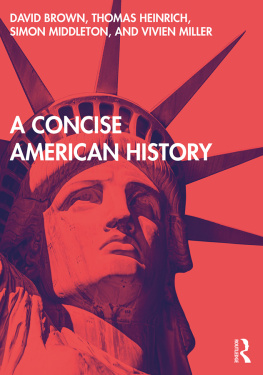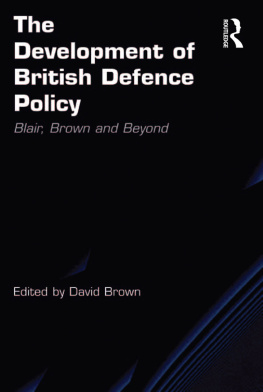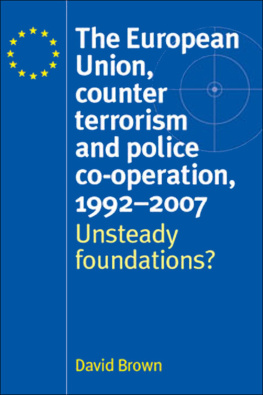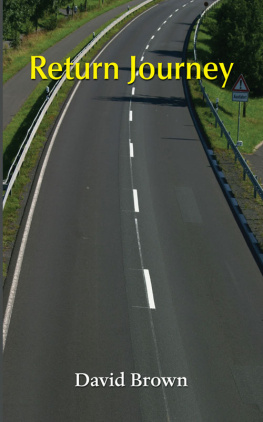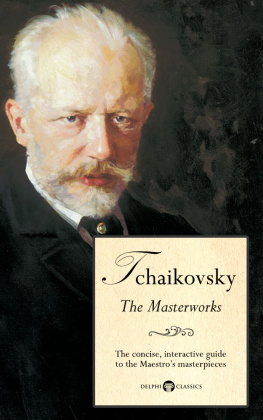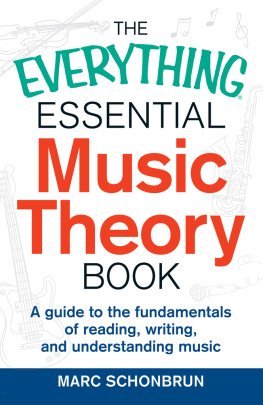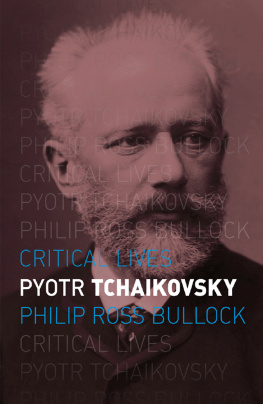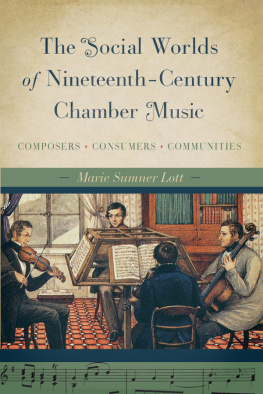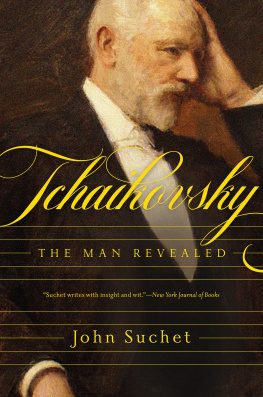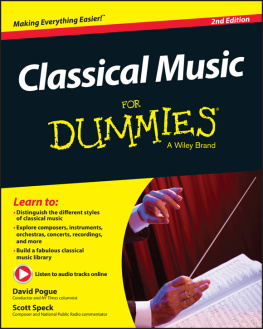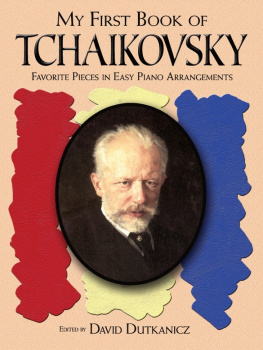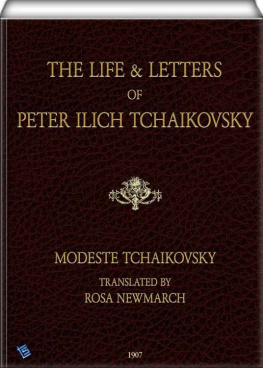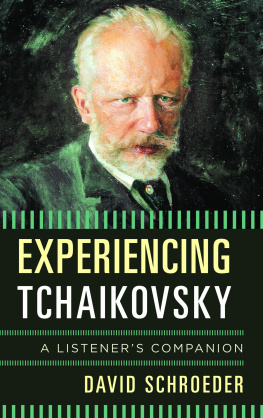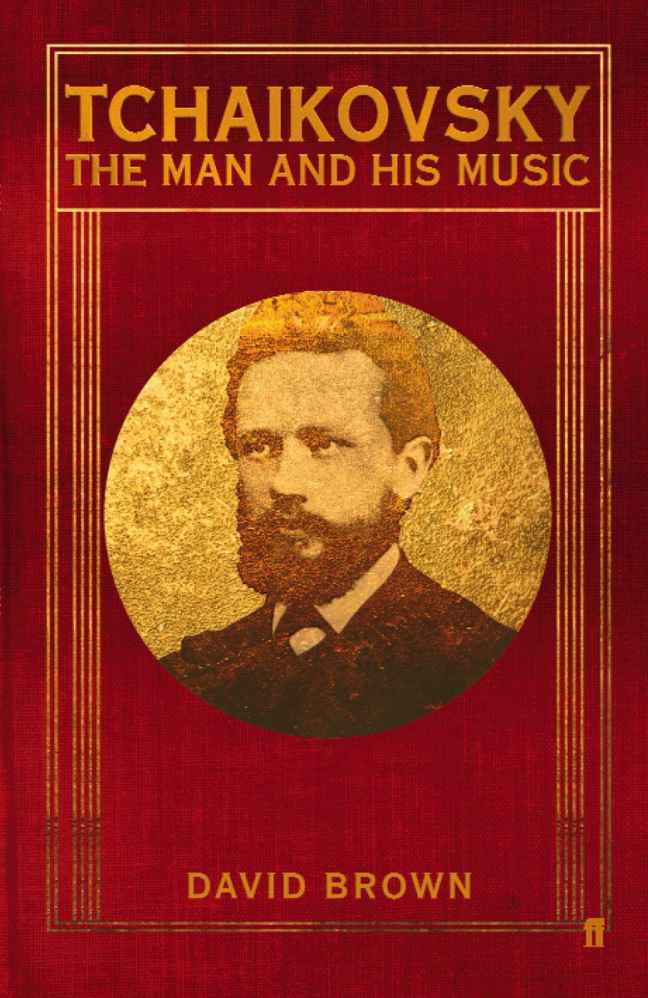For help in checking this book (as with my previous nine) I am very grateful to Elizabeth, my wife.
My thanks also to all the staff members of Faber involved in seeing this book out into the wider world.
A Personal Note
First, a thin slice of autobiography. In 1968 I was asked to write a book on Tchaikovsky. I declined: Not interested. Then in 1971 came an invitation to contribute a 20,000-word entry on Tchaikovsky to a new edition of the very prestigious New Grove Dictionary ofMusic and Musicians. It was irresistible and researching this shifted my whole view of this great Russian composer. Three years on, the publishers, Victor Gollancz, proposed a single-volume study of the composer, to take some four years. I accepted, though still with hesitation. But then Tchaikovsky himself took over. The contracted 150,000 words grew to 600,000; four years became sixteen, and a single volume became four. The result was the largest life-and-works of a Russian composer ever written anywhere including Russia itself: as the official Russian review put it, Frankly, we have nothing like it. Never had I realized how fascinating, how complex a man Tchaikovsky was even more, how great and varied a composer, and just how much of his vast output I simply had not known. Tchaikovsky was, I discovered, one of the true giants of nineteenth-century music.
Making that study has been the richest and most privileged of the many experiences of my professional life. But events have moved on. During the past fifteen or so years the transformation of the totalitarian Soviet state into the democracy Russia is today has seen the abolition of censorship and, with the opening of archives shut for decades, secrets known to only a tiny handful even of Soviet citizens have now emerged into the public domain. Of no individual is this more true than of Tchaikovsky, and within this enriched perspective an urge to return to him has reawakened in me. My earlier four-volume investigation, with its very detailed scrutiny of each work, all illustrated by an abundance of music examples, had been directed primarily at fellow professionals and musically literate amateurs. Now this new volume is offered to readers of all ages who may claim little or no musical competence, merely an interest in knowing more of this Russian genius, in deepening their enjoyment of his music by reading about any piece they may choose, and in having their ears alerted to things that they might not have picked up intuitively.
But I have a further and rather special hope. In our country, where class teaching of music in schools seems so often to have dwindled or even collapsed, and where virtually the only music most young people encounter is pop, or its associated styles, I am dismayed at what a whole generation has been cheated of in cultural experience. I know very well what once was but is now lost, having started my professional career in the mid-1950s teaching for five years on Thameside in secondary modern schools, the dustbins, as they were sometimes called, for those who had failed the eleven-plus, and were now condemned to leave school at fifteen. Yet what response could sometimes be aroused in such kids! Listening to a piece of classical music was always part of a lesson (two 40-minute periods a week for every class), and what might catch the imagination of my charges could be surprising and sometimes much at variance with the orthodoxy preached by teacher-training gurus. Just one instance. It involved a 3C class (thirteen-to fourteen-year-olds, some still illiterate) whom it was my fate one year to take last period on a Tuesday afternoon a particularly low point of the week, since exhaustion had already set in, yet it was still a long haul to Friday afternoon. Sometimes I seemed to be getting to the end of the class early and a fairly substantial filler was required to achieve a decent proximity to four oclock. I knew the question that would get the sort of answer I needed: what would they like to hear? Please, sir, can we have that cup music? was the almost predictable response. No, not Nessun dorma sung by Pavarotti (I am talking about 1955, not 1990); that cup music was the Prelude to Wagners opera Lohengrin , a musical vision of the Holy Grail gradually emerging into a great light, then receding into darkness. Eight and a half minutes of very slow music with no trace of a beat, no proper tune, the quietest of openings, which took nearly five minutes to get to a climax, and a long dying end that faded into nothing yet they would listen, perhaps just dreamily, remaining quiet and certainly, in their own ways, attentive, even when I turned the old 78 rpm record over in the middle.
I learned early that many of our professional educationalists seemed to judge children and young people by their own inadequacies, underestimating these youngsters capacity to engage with often highly sophisticated musical experiences. So while I hope, of course, that all readers who follow me through these pages will find some interest and illumination in them, it will delight me above all if I can awaken a curiosity in some of those whom our degraded education system has cheated of the experience of classical music that they should have been offered, but who can still catch up on lost time, if they choose.
DAVID BROWN
A Note on Using this Book
As I have written in my Personal Note, I hope that this book will be read by anyone who has some interest in tracing Tchaikovskys personal biography and discovering something of his major works, and where they fit into his life. But my prime aim has been to provide a listeners guide to readers who may have little or no knowledge of musical theory and terminology, but who may wish to make closer acquaintance with a selection of Tchaikovskys individual works. Especially I would wish to help those who seek a deeper knowledge of how Tchaikovsky mapped out these pieces, and of some of the procedures he used to create them, for I believe that, with this added knowledge to guide their ears, they may become conscious of things that can contribute richly to the listening experience, but of which they would otherwise have remained unaware.
The book can, of course, be read simply as a biography by omitting all the segregated discussions of individual works. As for the examinations of the music itself, these are done in clearly marked self-contained sections as each work crops up in the narrative. An introductory note in italics opens each of these sections, and I hope this will help the reader to decide whether he or she wishes to investigate that particular work, or to pass on. I have provided a specially detailed note on the second piece I have examined (the fantasy overture Romeo and Juliet ) so that those who may never have attempted to approach music other than through what their ears have picked up may have some guidance on how Tchaikovsky assembled a piece. (Readers in this category should bypass the examination of the 1st Symphony on pp. 314; they can always return to this later, should they wish.) By this I hope to alert them to things that can be of real significance to the listener, but that might otherwise be missed. Before my examination of


